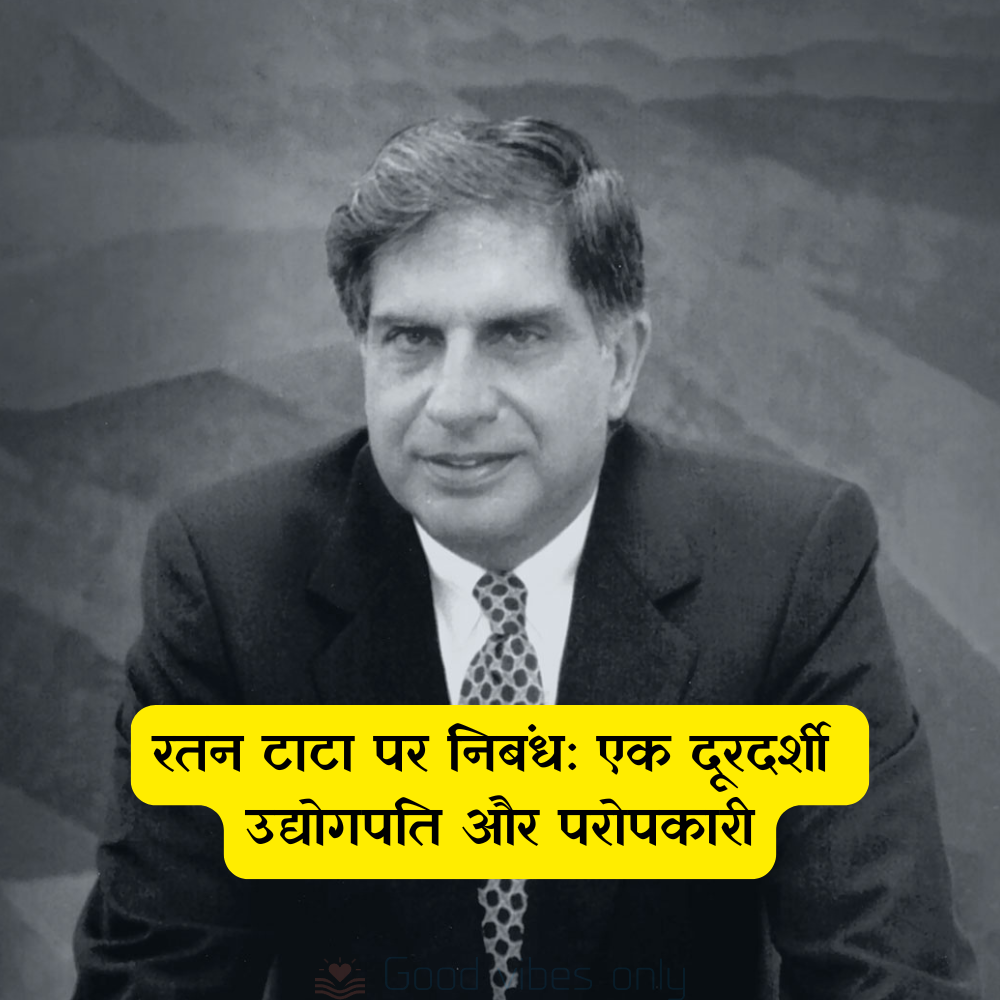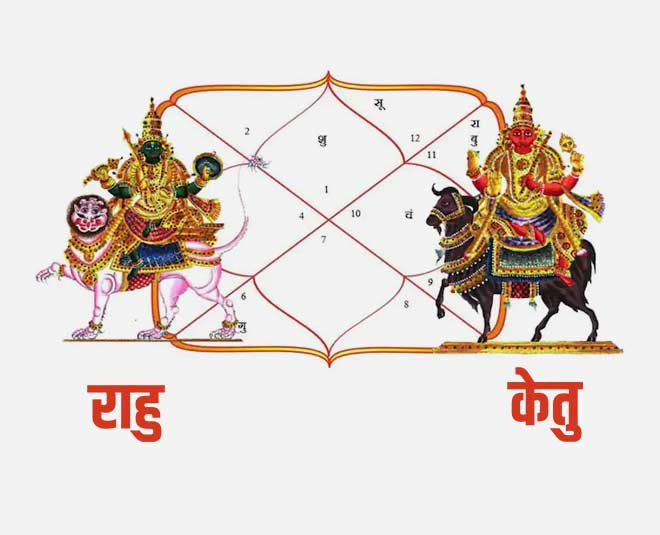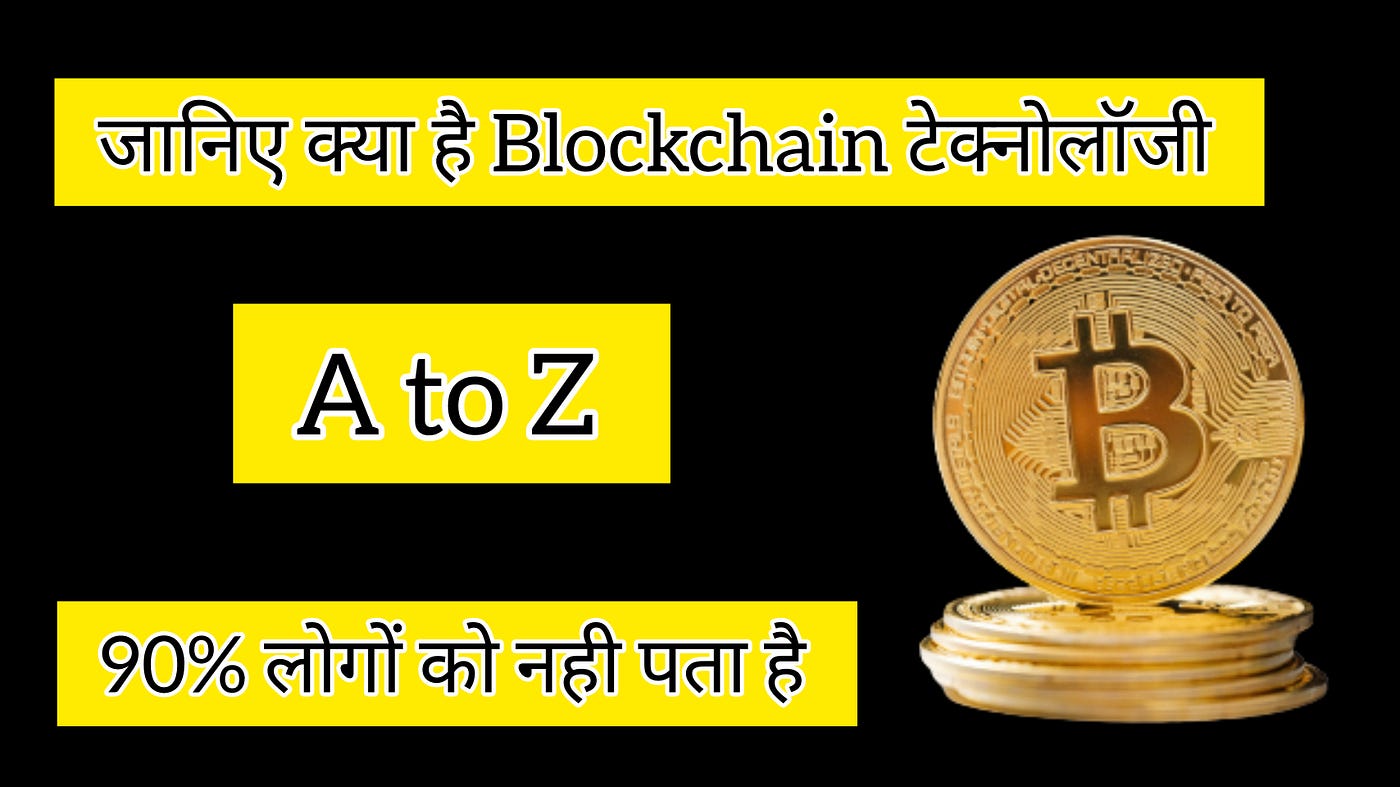Short Essay
Ratan Tata: The Visionary Leader and Philanthropist
Ratan Tata, the former chairman of Tata Sons, is one of India’s most revered business leaders. Born on December 28, 1937, Tata transformed the Tata Group into a global conglomerate through strategic acquisitions such as Jaguar-Land Rover, Tetley Tea, and Corus Steel. His leadership was marked by a commitment to ethics, innovation, and social responsibility.
Beyond his business contributions, Tata’s philanthropic work through Tata Trusts focused on healthcare, education, and rural development. His personal love for animals, especially dogs, inspired initiatives in animal welfare, including pet hospitals and shelters. This compassionate side of Tata’s personality showcases his broader commitment to making a positive societal impact.
Ratan Tata was honored with the Padma Bhushan and Padma Vibhushan for his contributions to business and philanthropy. He passed away on October 9, 2024, leaving behind a legacy of ethical leadership and a lifelong dedication to improving society. His values and contributions will continue to inspire future generations.
Long 500+ words essay
Ratan Tata: The Visionary Business Leader and Compassionate Philanthropist
Ratan Tata, born on December 28, 1937, is one of the most admired and respected industrialists in India. As the chairman of Tata Sons, he transformed the Tata Group from a largely India-centric business conglomerate into a globally recognized brand. Known for his integrity, ethical leadership, and long-term vision, Tata’s contributions extend far beyond business, reaching deep into the realms of philanthropy, innovation, and social responsibility.
Early Life and Education
Ratan Tata was born into the prestigious Tata family, which has long been a cornerstone of Indian industry and philanthropy. His father, Naval Tata, played a key role in the family’s legacy. Ratan Tata received his early education at the Cathedral and John Connon School in Mumbai before moving to the U.S. to attend Cornell University, where he studied architecture and structural engineering. He later pursued an Advanced Management Program at Harvard Business School.
Despite his privileged background, Tata’s entry into the family business was not through an executive position, but rather from the ground up. He started his career at Tata Steel, working on the shop floor, learning the nuances of the business from its core, and experiencing first-hand the challenges faced by workers. This hands-on approach shaped his leadership style, making him deeply empathetic and respectful toward all employees, irrespective of their position in the hierarchy.
Transforming Tata Group
In 1991, Ratan Tata succeeded J.R.D. Tata as chairman of Tata Sons. His tenure came at a crucial time, coinciding with India’s economic liberalization. Under his leadership, Tata Group expanded internationally, acquiring iconic global brands and companies such as:
- Tetley Tea (2000)
- Corus Steel (2007)
- Jaguar-Land Rover (2008)
These strategic acquisitions turned the Tata Group into a global business giant, cementing its position as a significant player in industries like automotive, steel, and consumer goods. His business decisions were often driven by long-term thinking and sustainability rather than short-term profits, a principle that helped Tata maintain its legacy of trust and reliability.
Tata Nano, one of Ratan Tata’s most ambitious projects, was born out of his vision to make cars affordable for the average Indian family. While the Tata Nano did not meet commercial expectations, it demonstrated Tata’s commitment to innovation for the masses and showcased his desire to bring about social change through business.
Philanthropy and Social Responsibility
Beyond his role as a business leader, Ratan Tata was deeply committed to philanthropy and social welfare. Through Tata Trusts, which controls a significant portion of Tata Group’s shares, Tata made enormous contributions to healthcare, education, and rural development. His belief in using wealth for the betterment of society was reflected in initiatives like funding healthcare facilities, scholarships, and various programs aimed at improving the quality of life for underprivileged communities.
One unique aspect of Ratan Tata’s personality was his deep love for animals, especially dogs. This passion led him to support various animal welfare initiatives across India. Under his leadership, Tata Group funded projects for pet hospitals and shelters, changing the approach to animal welfare in India. His compassion extended beyond humans, revealing a multifaceted personality that cared deeply for all living beings. This humane side of Tata reflects his broader commitment to kindness and social upliftment, values he upheld in both his personal and professional life.
Leadership Style
Ratan Tata’s leadership was characterized by humility, empathy, and integrity. He led by example, often placing the well-being of employees and society above pure business interests. Known for his quiet demeanor, Tata was never driven by public recognition or media attention. His decisions, though sometimes unconventional, were always rooted in strong ethical principles and a desire to make a lasting positive impact.
In 2008, after the Mumbai terror attacks, Ratan Tata showed extraordinary leadership and compassion. The Taj Mahal Palace, owned by the Tata Group, was one of the attack sites. Tata not only oversaw the restoration of the hotel but also personally ensured that all employees and victims’ families were financially supported, demonstrating his commitment to people in the face of crisis.
Recognition and Honors
Ratan Tata’s contributions to business and society have been recognized with numerous awards and honors. The Government of India bestowed upon him the Padma Bhushan in 2000 and the Padma Vibhushan in 2008, the third and second-highest civilian honors, respectively. Internationally, he has been acknowledged for his contributions to global business and philanthropy.
Legacy and Passing
Ratan Tata passed away on October 9, 2024, at the age of 86, marking the end of an era for Indian industry. His death was mourned by leaders, business communities, and citizens alike, as they reflected on the profound impact he had on both India and the world. His legacy goes beyond the vast business empire he built; it lies in the values of trust, integrity, and compassion that he embedded in Tata Group’s DNA.
Conclusion
Ratan Tata’s life was a remarkable blend of business acumen, compassion, and social responsibility. He set an example for future generations of leaders, not just in India but across the globe. His work in expanding Tata Group’s global footprint, his innovative approach to solving societal problems, and his dedication to philanthropy make him one of the most admired figures in modern India. His legacy will continue to inspire for generations, reminding us that business success and social responsibility can, and should, go hand in hand.
लघु निबंध
रतन टाटा: दूरदर्शी नेता और परोपकारी
रतन टाटा, टाटा संस के पूर्व अध्यक्ष, भारत के सबसे प्रतिष्ठित व्यापारिक नेताओं में से एक थे। उनका जन्म 28 दिसंबर, 1937 को हुआ और उन्होंने टाटा समूह को वैश्विक स्तर पर स्थापित किया। उनके नेतृत्व में जगुआर-लैंड रोवर, टेटली टी, और कोरस स्टील जैसे अधिग्रहण हुए। उनके नेतृत्व की पहचान नैतिकता, नवाचार, और सामाजिक उत्तरदायित्व के प्रति उनकी प्रतिबद्धता से की जाती है।
व्यवसाय से परे, उन्होंने टाटा ट्रस्ट्स के माध्यम से स्वास्थ्य, शिक्षा और ग्रामीण विकास में महत्वपूर्ण योगदान दिया। उनकी पशुओं के प्रति प्रेम ने पशु कल्याण में कई पहलों को जन्म दिया, जिनमें पेट अस्पताल और आश्रय शामिल हैं।
रतन टाटा को उनके योगदान के लिए पद्म भूषण और पद्म विभूषण से सम्मानित किया गया। उनका निधन 9 अक्टूबर, 2024 को हुआ, लेकिन उनका नेतृत्व और समाज सेवा की भावना आने वाली पीढ़ियों को प्रेरित करती रहेगी।
500+ शब्दों का लम्बा निबंध
रतन टाटा: एक दूरदर्शी नेता और परोपकारी
रतन टाटा, भारतीय उद्योग जगत के सबसे प्रतिष्ठित और सम्मानित नेताओं में से एक थे। उनका जन्म 28 दिसंबर, 1937 को हुआ था। टाटा समूह के अध्यक्ष के रूप में, उन्होंने कंपनी को वैश्विक स्तर पर एक नई ऊँचाई तक पहुँचाया। उनके नेतृत्व में, टाटा समूह ने न केवल अपने व्यापारिक हितों का विस्तार किया, बल्कि सामाजिक जिम्मेदारी के प्रति भी अपनी प्रतिबद्धता को सुदृढ़ किया।
प्रारंभिक जीवन और शिक्षा
रतन टाटा का जन्म एक प्रतिष्ठित पारसी परिवार में हुआ था। उनके पिता, नवल टाटा, टाटा परिवार का हिस्सा थे और टाटा समूह की परंपराओं को आगे बढ़ाने में महत्वपूर्ण भूमिका निभाई। रतन टाटा ने अपनी प्रारंभिक शिक्षा मुंबई के कैथेड्रल एंड जॉन कॉनन स्कूल से प्राप्त की। इसके बाद उन्होंने कॉर्नेल विश्वविद्यालय से आर्किटेक्चर और स्ट्रक्चरल इंजीनियरिंग में स्नातक की डिग्री हासिल की। शिक्षा के प्रति उनकी गहरी प्रतिबद्धता और उच्च स्तर की शिक्षा ने उन्हें भविष्य के नेतृत्व के लिए तैयार किया।
टाटा समूह में नेतृत्व
रतन टाटा 1991 में टाटा समूह के अध्यक्ष बने, जब भारत की अर्थव्यवस्था में उदारीकरण का दौर शुरू हुआ था। उस समय टाटा समूह मुख्यतः एक घरेलू ब्रांड था, लेकिन रतन टाटा की दूरदर्शी सोच ने कंपनी को अंतरराष्ट्रीय मंच पर स्थापित किया। उनके नेतृत्व में, टाटा समूह ने कई महत्वपूर्ण अधिग्रहण किए, जिनमें से कुछ प्रमुख हैं:
- टेटली टी (2000)
- कोरस स्टील (2007)
- जगुआर-लैंड रोवर (2008)
इन अधिग्रहणों ने टाटा समूह को एक वैश्विक व्यापारिक शक्ति बना दिया। रतन टाटा की यह सोच थी कि भारतीय कंपनियाँ वैश्विक स्तर पर प्रतिस्पर्धा कर सकती हैं, और उनके इस दृष्टिकोण ने टाटा समूह को एक नई पहचान दी। इसके साथ ही, उन्होंने टाटा मोटर्स को एक विश्व स्तरीय ऑटोमोबाइल कंपनी बनाने के लिए भी महत्वपूर्ण कदम उठाए। टाटा नैनो, जो दुनिया की सबसे सस्ती कार थी, रतन टाटा का एक अनूठा प्रयास था, जिससे आम आदमी के लिए कार का सपना साकार हो सके।
नेतृत्व शैली और सामाजिक योगदान
रतन टाटा के नेतृत्व की सबसे बड़ी विशेषता उनकी नैतिकता और सामाजिक जिम्मेदारी के प्रति उनकी प्रतिबद्धता थी। उनके लिए व्यापार केवल लाभ कमाने का साधन नहीं था, बल्कि समाज की भलाई का एक मार्ग था। उन्होंने टाटा ट्रस्ट्स के माध्यम से शिक्षा, स्वास्थ्य और ग्रामीण विकास के क्षेत्र में कई महत्वपूर्ण कार्य किए। टाटा ट्रस्ट्स भारत में स्वास्थ्य सेवाओं और शिक्षा के सुधार के लिए निरंतर काम कर रहा है।
रतन टाटा के सामाजिक योगदान की एक और महत्वपूर्ण पहलू है उनका पशुओं के प्रति प्रेम। उन्होंने पशु कल्याण के क्षेत्र में भी अपनी छाप छोड़ी। टाटा समूह ने कई पेट अस्पताल और आश्रयों की स्थापना की, जिनसे पशुओं की देखभाल में सहायता मिली। यह उनके मानवीय दृष्टिकोण और समाज के सभी वर्गों, चाहे वे मनुष्य हों या जानवर, के प्रति उनकी प्रतिबद्धता को दर्शाता है।
सम्मान और पुरस्कार
रतन टाटा को उनके उल्लेखनीय योगदान के लिए कई राष्ट्रीय और अंतरराष्ट्रीय पुरस्कारों से सम्मानित किया गया। भारत सरकार ने उन्हें पद्म भूषण (2000) और पद्म विभूषण (2008) से सम्मानित किया। उनके नेतृत्व और सामाजिक योगदान को विश्व स्तर पर भी सराहा गया। वे एक ऐसे व्यक्ति थे, जो मीडिया से दूर रहते थे और हमेशा सादगी और विनम्रता को अपने जीवन का हिस्सा बनाते थे।
निधन और विरासत
रतन टाटा का निधन 9 अक्टूबर, 2024 को हुआ, जिससे भारत और दुनिया भर के लोगों ने एक महान नेता को खो दिया। उनका जीवन और कार्य न केवल भारतीय उद्योग जगत के लिए बल्कि समाज के लिए भी एक प्रेरणा स्रोत रहे हैं। उन्होंने यह साबित किया कि व्यापारिक सफलता और सामाजिक सेवा साथ-साथ चल सकते हैं। उनकी विरासत आने वाली पीढ़ियों को यह सिखाएगी कि व्यवसाय का असली उद्देश्य समाज को बेहतर बनाना है।
निष्कर्ष
रतन टाटा केवल एक सफल उद्योगपति नहीं थे; वे एक सच्चे समाजसेवी और दूरदर्शी नेता थे। उनके नेतृत्व में टाटा समूह ने न केवल आर्थिक सफलता हासिल की, बल्कि समाज के लिए भी कई महत्वपूर्ण योगदान दिए। उनकी सादगी, ईमानदारी, और समाज के प्रति उनकी प्रतिबद्धता उन्हें भारत और दुनिया भर में एक आदर्श व्यक्ति के रूप में स्थापित करती है। रतन टाटा की विरासत आने वाली पीढ़ियों के लिए एक प्रेरणा स्रोत बनी रहेगी।





Regards for helping out, good info .